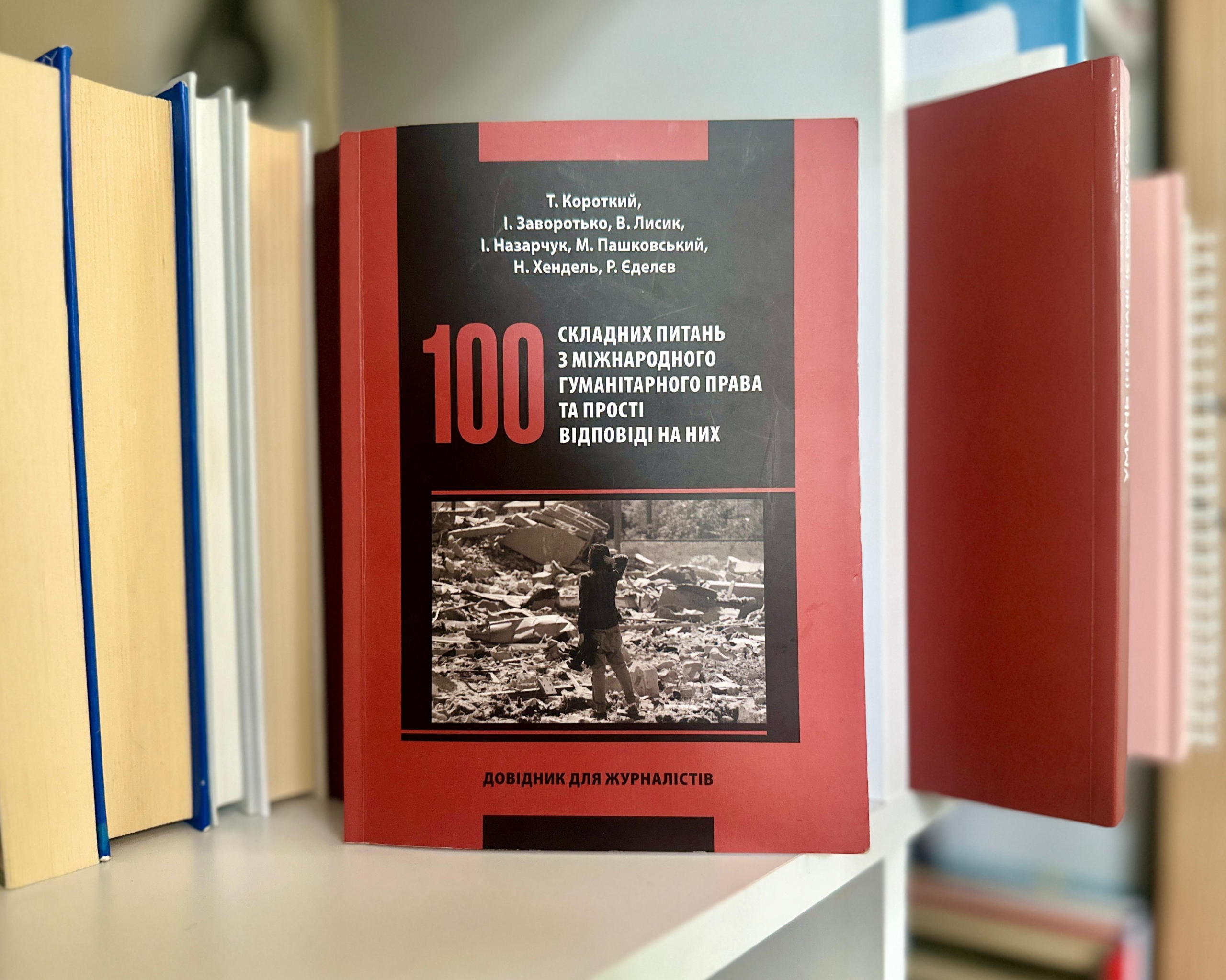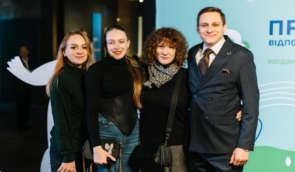“100 Difficult Questions on International Humanitarian Law and Simple Answers”: a new handbook for journalists has been released
The Human Rights Centre ZMINA, with the support of Freedom House in Ukraine, has prepared an updated second edition of “100 Difficult Questions on International Humanitarian Law and Simple Answers: A Handbook for Journalists”. The handbook is designed as a practical tool for media representatives covering the armed conflict caused by Russia’s aggression against Ukraine.

The publication was prepared by a team of experts and legal scholars, including Tymur Korotkyi, Inna Zavorotko, Nataliia Khendel, Iryna Nazarchuk, Roman Yedeliev, Maksym Dotsenko, Volodymyr Lysyk, and Mykola Pashkovskyi.
The handbook sets out the main provisions of international humanitarian law (IHL), in particular regarding the status of parties and victims of armed conflict, the conduct of hostilities, the regime of occupation, the protection of civilians and accountability for war crimes. The publication also covers a number of important issues related to the professional activities of journalists during wartime: their legal status in armed conflict, protection principles, rules for covering the topic of prisoners of war, etc.
“Since Russia’s full-scale invasion of Ukraine, public demand for knowledge of international humanitarian law has grown significantly. This is especially true for journalists who cover crimes committed by Russia against Ukraine and Ukrainians on a daily basis,” said Tetiana Pechonchyk, the Head of the Human Rights Centre ZMINA and member of the Commission on Journalism Ethics. “This handbook is our contribution to disseminating knowledge about IHL and improving the professional level of media outlets covering these issues“.
The handbook contains answers to key questions that journalists frequently ask: why international humanitarian law does not prohibit war but regulates its conduct; when the international armed conflict between Russia and Ukraine began; what the difference is between international humanitarian law and human rights law; who is responsible for war crimes; and more.
According to Tymur Korotkyi, Vice-President of the Ukrainian Association of International Law, Ukraine is a unique example of a state that ensures strict compliance with international humanitarian law during a highly intense international armed conflict, despite its blatant violation by the aggressor.
“International humanitarian law represents a valuable, civilisational dimension of Ukrainian society and the state, and serves as a marker of belonging to the democratic community. Its implementation is directly linked not only to the knowledge of the military and politicians, but also to its perception by society as a whole as a moral imperative, which in turn creates social, informational and psychological conditions for compliance. Therefore, its dissemination and observance are not only a legal obligation of the state, but also an important factor in gaining moral superiority over the aggressor and an instrument for ensuring justice through documentation and accountability for war crimes,” said Tymur Korotkyi.
The handbook has been supplemented with an information section containing lists of international treaties and sources of law, descriptions of bodies investigating violations of IHL, and mechanisms for holding the Russian Federation and individuals accountable for international crimes committed in connection with and in the context of the war.
This handbook will be useful not only for journalists, but also for anyone who needs to know and apply international humanitarian law in their professional duties, such as human rights defenders, lawyers, legal professionals and educators.
You can download the handbook here. If you wish to order a printed copy of the handbook, please send a request to tp@zmina.ua.
Earlier, ZMINA, together with the Commission on Journalism Ethics, also published the handbook “Self-regulation of Ukrainian media during martial law in Ukraine”.
If you have found a spelling error, please, notify us by selecting that text and pressing Ctrl+Enter.















